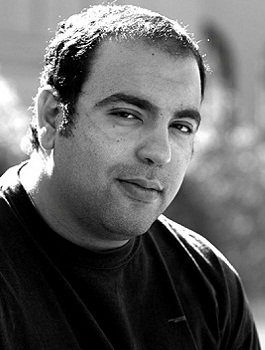By H. A. Hellyer
It took everyone by surprise. It took the regime by surprise. It took the world by surprise. But more than anyone, it took the Egyptian people by surprise.
There have been a lot of assumptions about the Middle East region in general, and Egypt in particular. Some of them are absurd, and are held by people who know little or nothing about the region. Others are less ridiculous, and are formed by analysts who have spent years in the region. But everyone, Egyptian and non-Egyptian alike, was taken by surprise by the events of the past few weeks.
I’m not referring here to the protests per se — I think many suspected that at some point in Egyptian history, with the level of political repression that existed, the socio-economic problem that persisted, it would be incredible if there was not some sort of uprising against the state. I personally suspected it might happen sooner rather than later, but I expected it would be more about spontaneous anger at socio-economic disparities, fuelled by political repression, and that it would be incredibly violent.
But here I’m referring to what the protests produced for Egyptian civil society in Tahrir Square and neighborhoods in Egypt during the protest, as well as what began in Egypt immediately after President Hosni Mubarak fell. I term those effects, as well as the effects on the Egyptian diaspora, as “the Square”.
It’s hard to quantify the change from pre-January 25 to afterwards — but it was a massive sea change. Within Tahrir Square itself, the quasi-autonomous area was very much an Egyptian space — but it was a space whose elements, while recognizable to Egyptians, have not been as noticeable in Egypt in recent years. The level of volunteerism, for example, a culture of which might exist in Egypt, but which was completely vitalized in Tahrir, as people volunteered their time to clean up and provide food and drink to those therein. The respect for pluralism that existed in Tahrir — the easy way that women in face-veils mixed and mingled with women in tank-tops, the way that Christians protected Muslims during Friday prayers and Muslims protected Christians during Sunday services — all of this was the normative Tahrir experience. The incredible politeness of those who searched people entering Tahrir Square for weapons and checked their IDs. As someone who travels a great deal, I can testify to the fact that no one in airport security has ever treated me with the same degree of warmth.
Beyond Tahrir, in the neighborhoods of Egypt, the world had changed. We were all surprised to find that when the police departed the streets and thugs and convicts were roaming freely, instead of Egyptians locking themselves in their homes, they poured out into their neighborhoods to defend themselves. Spontaneously, they formed neighborhood watches and checkpoints, manning them with great decorum and meeting their neighbors in the process. I know that anyone who was a part of those checkpoints and watches was changed by the experience. For many, it was the first time they had really experienced civil society, in a country whose state had ensured that all non-state organized activity was pushed to the margins.
Back in Tahrir Square on the day after Mubarak fell, it was yet again a wonderful explosion of civic consciousness. Young and old, rich and poor, men and women — people from all sectors of society descended upon Tahrir Square to rebuild it. Pavements that had never been painted were now glowing — the streets were cleaner than I can ever remember — and volunteers were frustrated because they had nothing left to do after a few hours. I’ve never quite witnessed anything like it before, anywhere in the world.
In the weeks and months ahead, it’s clear that there will be a need for even more civic actions that uphold the true lessons behind what transpired within the Square — whether in Egypt or abroad. The spirit of Tahrir Square should be multiplied, within Egypt for the sake of the people of this country, and within the world for humanity at large. Tahrir Square should be squared, and continue to be squared, which is why a new website, www.tahrirsquared.net, will be launched in the coming days and weeks to facilitate the multiplication of the power of civil society in Egypt and abroad.
Egypt now stands at the beginning of a new era. It is an era of uncertainty coupled with hope. Hope, because so many of the limitations that fettered the development of this nation are now gone, and uncertainty, because Egyptians are not quite sure what they are going to do with this new found freedom. They have intentions, but the road ahead is long and arduous. And yet, while they have proven themselves not naive about that road, they have earned the right to walk it in spades. And perhaps, just perhaps, they will surprise the world yet again.
H. A. Hellyer is a fellow at the University of Warwick in the UK. Throughout the Egyptian uprising, he was in Cairo, raising awareness through the international media, and attending several of the protests. This commentary is published by DAILY NEWS EGYPT in collaboration with bitterlemons-international.org.


